|
When I first aspired to become an author, I imagined my time would be spent filling a blank page with words to woo the masses… not taking into account the editing or marketing required, which is enough to drive a sane person to the brink of insanity. Write, edit, market, repeat. Over and over and over. See what I mean about the insane part? Depending on where you're at in your writing endeavors, this may be common knowledge. You may have listened to the multiple authors telling you the best practices to start. Unfortunately, I did not listen to them and learned the hard way. Live panel at Anime Recharge 2019 A successful writing career comes down to 5% skill, 5% luck, and 90% who you know.
A crucial part of creating a profitable book is connecting with others. Marketing should come well before your book is even launched. It's easier to get your sale ranking up if you've gotten pre-orders at the ready and reviews already elevating the story. Much easier than having the book be launched and having people give you a raised eyebrow, "Really? You actually wrote a book?" Even if your picture is on the back, it sometimes takes three forms of ID to convince a potential customer that you are, in fact, the author of the book in front of you. I sometimes wear a hat with the title WRITER on it to avoid confusion. Why is skill so low? With enough money, you can pay someone to write your story. You could be a famous author and never type a word. I do want to point out that money should be spent on a good editor even if it is something like Grammarly pro. Why is luck so low? Let's face it. Writing is hard. It takes getting your book in the hands of the right reader who will help promote your book. If those people grow exponentially, you have a fan base that will lift off the massive marketing load from you. But keep connecting with others. I dabble in multiple genres. The indie authors who can boast of their sales typically stick to one genre and write a series. I decided to experiment with my books and put together a collection of poetry to get my feet into the publishing pool. I tripped, fell face first, and discovered it was acid, not water. Okay, that may be an overstatement. A small press threw me a life preserver and helped me out of the deep end. After publishing a non-fiction book, I released my first science fiction novel. At this point, it would have made sense to continue the series into space, which I plan to do. However, I then published my first book in a fantasy series. By now, any fans of my poetry are rightfully confused as I sprinkle in bits of verse in my novels. Don't worry. I'm working on a collection of short stories that will have some poems in it as well… it might be leaning more toward the horror genre, because, why not? The marketing beast. There's a healthy balance between too much and too little. It's easy for us to want to get all the swag for our story: bookmarks, pens, shirts, cups, tissue dispensers, etc. Unfortunately, it can lead to a surplus of supplies becoming more difficult to give away. If you have enough people you know, the merchandising can boost the profits for your book. For me, I did radio interviews and became a feature in the newspaper for my home town. It might not be the smallest of towns, but rural Nebraska can be a hard sell for poetry books. If you're able to find an affordable marketing director, use that connection. If you are proficient in marketing, I like the outdoors, piña coladas, and getting caught in the rain. Ignoring the fans is not a good idea. Occasionally, I will have a reader comment on one of my characters or things they enjoyed about my book. It would likely happen more if I stuck with one genre and series. Listen to them. Find ways to work their ideas into subplots or suggestions. It's best to write for yourself in order to keep your passion for writing alive, but it's fun to entertain the idea that a character may be coming back in an upcoming story. Writing alone. Trying to write on your own is one of the quickest ways to lose your mind. Remember the scene from the Shining? It is easy to lose your motivation to write if you don't have people around to encourage your work. Writing is important. Your words are needed. Finding a small critique group and having honest beta readers has been an invaluable blessing in my writing career. It is hard to take a book from draft to published. Even if the critiques and reviews are painful in this phase, you will be thankful for it once the book is in the hands of strangers. A final note on publishing. Being the first author for a small press, we learned a lot about publishing together. Countless businesses would be happy to print your book for you. Most of these require you to buy in bulk, and we had way too much bulk in poetry. If you're starting out, doing print-on-demand through KDP or Ingramspark becomes more affordable and economical. I won't go into depth on either publishing company as there plenty of great articles on the topic. And we're talking about what I did wrong, like hardcover books. I've only had one book that was hardcover, and that was my poetry collection, which we bought in bulk. Needless to say, it did not sell as well as the softcover. Hopefully, you have the opportunity to learn from other authors as you pursue a writing career. Although I became serious about my writing six years ago, I am at the beginning. The one question you should ask yourself is what you would define as success. Once you have a goal in mind, go out and tell others about your pursuit. Their support will save your sanity. Do you have a book you've just published or are aspiring to get released? Let me know in the comments. I'd love to be one of your connections.
Research has shown that it takes at least 2 months to develop a habit. So while the event tries to push you to write every day, it only does so for half of the time needed to make it a habit. Try as you may, the companionship and inspiration you acquired while doing NaNoWriMo will fizzle out. Even before month’s end, if you are like me, the green/purple bar blues can hit and kill your drive to keep writing. It may even hit you during the dreaded week 2, which claims the lives of many wrimo novels who fail to slug their way through it. But through the fire of those trials, the steel of a writer is resolved.
|
Distractions bugging you? Get your organic spray here*
Strange noises erupt from the black device convulsing on my desk. I try to ignore my inner voice, but it nags at me. What if it is someone important? I grasp the sleek technology and press a button. In an instant, I am whisked away to a world of knowledge, entertainment, and social media. I feel its warmth radiating in my palm from this computer that I could only dream of while growing up, with internet speeds over 56k! (Plus I can browse while using it as a phone without the “Dial-Up” noise.)
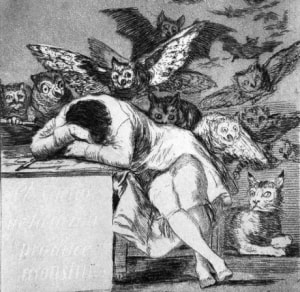
The world of smartphones is a wondrous world indeed. It is good to know what is happening in the world of social media so we can join the conversation. But, the distractions can become worse than a swarm of Minnesotan mosquitoes. So apart from locking myself in a closet with nothing but pen and paper, how does one write that blog due in a few hours?
I discovered an organic mix of ingredients to spray away those bugs for this summer. These 6 steps can be used to keep away the annoyances. Okay, *I lied on the organic part,* but the odds are in your favor if you have a smartphone. Just be sure to turn it to silent while you write.
I discovered an organic mix of ingredients to spray away those bugs for this summer. These 6 steps can be used to keep away the annoyances. Okay, *I lied on the organic part,* but the odds are in your favor if you have a smartphone. Just be sure to turn it to silent while you write.
1. Before You Spray (plan ahead)
Make sure you set a specific time of your day for writing purposes and let people know about it. Your friends will be coming out of the walls if you do not let them know you are busy. Even then, there are those wrecking balls who like to swing in unannounced… hopefully clothed.
2. Apply As Needed (set an alarm)
If you must stay connected all the time, use a timer to write in short bursts. Most smartphones have these already installed. You can take a few minutes to update your statuses and catch up on anything you missed when it goes off. This will give you a sense of urgency to stay on task as well. 25 minutes writing, 5 minutes break is a recommended dose.
3. For Best Results (keeping the flow)
When your alarm goes off or you are needing to break, stop in an area where the scene is not resolved. If you end at a natural break, you will struggle with getting started again. This is a huge step in eliminating writer’s block. You may also think of a better twist or ending to the scene while you step away for a moment.
4. Active Ingredient (chewing gum)
This may seem crazy, but it really works. The phrase, “he can’t even walk and chew gum at the same time,” is partially true. You can write and chew gum, but your mind will not wander off as easy. You may have some other routine that helps you stay focused while writing. Let me know in the comments.
5. Subconscious Ingredient (inner sanctuary)
I had to start by locking myself in a closet. I would mute my smartphone and listen to the music on my computer while writing. Once I became comfortable in that place, I could bring it with me. You only have to imagine the atmosphere of the area. Remember that place and the peace it brought.
Robert Christensen blogged about this at The Octopus Garden: Your Creative Zone
6. Side Effects (reward your time)
You did it! You managed to ignore the culture and refuse to listen to all the attention it is trying to take from you. Now do something fun. It could be an easy writing prompt, playing a game on your smartphone, or jumping in to a live video event on YouTube (Click here for mine).
I hope these directions keep the distraction blight away. I try to apply these ointments as often as possible. What are some of your ways to avoid distractions?
| This past month flew by with writing competitions, renaissance festivals, new job opportunities, and packing. If not for an invaluable tool I use on my writing belt, I would have failed to meet the deadline for a writing competition (see: Kill Your Deadlines). The number of outlines available may come close to the number of genres you could imagine. I am going to focus on one that I use in my own stories. Of course, you do not need to use the outline for your story, but I believe it helps the story sing when it hits the beats right. Please, join me in this journey* through the “Save the Cat” beat sheet by Blake Snyder. *I discovered this path by Jami Gold. There are links to the spreadsheet on her page: http://jamigold.com/for-writers/worksheets-for-writers/ |
Project Title
Enter your story title here.
(I'm just making this up as we go for this blog) Multipurpose Fairy
Log Line
Synopsis or Short Description
“A fairy discovers she could join a local performing troupe and with the help of a little pixie dust, the act takes off.” (*disclaimer: bad puns may be littered through the cat sheet*)
Word Count
Enter your desired count
7,500
(and I just searched for "periwinkle the fairy" and discovered that it is already in the Disney universe... no similarities are intended or even remotely assumed.)
Enter your story title here.
(I'm just making this up as we go for this blog) Multipurpose Fairy
Log Line
Synopsis or Short Description
“A fairy discovers she could join a local performing troupe and with the help of a little pixie dust, the act takes off.” (*disclaimer: bad puns may be littered through the cat sheet*)
Word Count
Enter your desired count
7,500
- Opening Image, 1-75 total words
the “before” image; status
Periwinkle is enjoying a stroll in the woods - Theme Stated, 341 total words
another character poses theme to MC
Periwinkle's sister tells her to explore further and do more with her fairy magic - Set-up, 341-683 total
introduce each character in story A
Periwinkle meets the actors practicing in the woods (on a mid-summer night... sorry, wrong story). They tell her of the great competition to be held for the magistrate. - Catalyst, 819 total
life-changing event or trigger
One of the actors is allergic to fairies and is rushed away. They need a replacement. - Debate, 819-1706
critical choice, accepting the quest, point-of-no-return, etc
The others convince Periwinkle to join their group. She has never acted before so she just wings it (ha). - Break into Two or Act Two, 1706 (part of 5. Debate)
result of choice, change of pace
Periwinkle's troupe enters to find the town overcrowded with actors. - B-Story, 2048 total words
team building, fun time; love story and theme progressing
Periwinkle and her troupe practice together. One of the others begins crushing on her (because fairy romantic stuff). - Fun & Games, 2048-3754
what the premise is all about; fun with the story
Periwinkle and the others meet some of their competition. Rivaling troupes begin to suspect the use of magic. Glitter gets everywhere. - Midpoint, 3754 total words
Halfway through first and second half; fun and games are over; stakes raised
Periwinkle's group performs for the magistrate. He is allergic to fairies (my imagination is running wild with thoughts of fairy-allergy symptoms). - Bad Guys Close In, 3754-5119
Enemy gets together and attacks; MC's team unravel; anti B-story
The other acting troupes begin to oppress Periwinkle's group. The group falls apart as they accuse the leader of being in love with the fairy. They are forced to regroup in a cramped room at the inn on the corner of town. - All Is Lost, 5119
Opposite of Midpoint; No hope; The feels become real
The group grumbles that the fairy is lighting the room up too much and they cannot sleep. The leader says he regrets casting her. - Dark Night Of The Soul, 5119-5801
Darkest point in the story; MC loses all
Periwinkle leaves the group and wanders into the town alone. - Break Into Three or Act 3, 5801
A and B story combine to reveal solution
Other acting troupes see her and try to convince her to join their group. The magistrate sends guards out to arrest her. - Finale, 5801-7433
Wrap-up of the story; Dispatch “Bad Guys” in ascending order working to the boss
The other actors abandon Periwinkle to deal with the guards alone. Her old group finds her and hides her from the guards just in time. The fairy uses her magic to fly all of them back to her home in the woods. - Final Image, 7500 total words (huzzah!)
opposite of opening image, new state of the status
The group performs their show for the Fairy Queen and they are hired as full-time performers for the fairy court. The group leader marries Periwinkle, Periwinkle's sister falls for the one no one liked, and they all live happily ever after (wow, I think I just wrote the new Tinkerbell movie).
(and I just searched for "periwinkle the fairy" and discovered that it is already in the Disney universe... no similarities are intended or even remotely assumed.)
“The bad news is, time flies. The good new is, you're the pilot.” ~Michael Althsuler
While attending a writing convention to improve my craft, another author gave some amazing advice. They said we each have the same 24 hours in a day. There is no magical spell that allows writers to have extra time to write their novel (As much as I wish… I could get more sleep). I have the same amount of time as Stephen King, J K Rowling, and all the others before and since. The difference is simple: they planned ahead and finished their work. Some may have the ability to dream and create a fantastic book from their subconsciousness. I have read fantastic stories from such authors (Maria Watson); but, that is not how every story is made. For the rest of us, we have to plant the seed and tend to it as it blooms into the magnificent collection of words and phrases arranged in the perfect bouquet. How do we do that? I offer you five pieces of advice I learned.
While attending a writing convention to improve my craft, another author gave some amazing advice. They said we each have the same 24 hours in a day. There is no magical spell that allows writers to have extra time to write their novel (As much as I wish… I could get more sleep). I have the same amount of time as Stephen King, J K Rowling, and all the others before and since. The difference is simple: they planned ahead and finished their work. Some may have the ability to dream and create a fantastic book from their subconsciousness. I have read fantastic stories from such authors (Maria Watson); but, that is not how every story is made. For the rest of us, we have to plant the seed and tend to it as it blooms into the magnificent collection of words and phrases arranged in the perfect bouquet. How do we do that? I offer you five pieces of advice I learned.
1. Set goals for yourself
Even if it is something as simple as 30 minutes a day writing or editing, take time to do it. I set soft deadlines for each draft of my story. This helped me practice for the real deadline for a short story I submitted in April. The people who are great writers spend most of their time writing. It’s not always fun, but it’s worth it in the end.
2. Avoid distractions
It sounds simple enough, but ask any author about the number of distractions they have to wall out and they will tell you otherwise. The world screams for your attention. I had to use the small space of our coat closet when I started. Once I learned how to ignore those pesky things, I was able to move to other locations. Find your writing “closet” to work your magic. I wrote an article to help you with distraction pests.
3. Research
Wondering how to make your story better? Ask others. There are countless articles, blogs, tweets, and pictures giving you an arsenal to devastate that deadline. It helps to step away and dig a bit online, yet be wary of those internet holes. YouTube can suck you away for hours (Seriously, 2 or 3 videos of what you are learning about are enough… and watch out for kittens).
4. Plan ahead
This is where you have to experiment a bit. Maybe you enjoy creating characters and throwing them into a wild situation, letting their adventures write the tale. It could be you start typing with a writing prompt and let the words guide you. However, you could also be like me and spend hours creating an outline, character sheet, and thesis before you even start your rough draft. Research some different ways and find what works. I’ve enjoyed using the “Save the Cat” outline for my novels.
5. Panic! Freak out! or Reward yourself for making it!
Hopefully, you reached your goals and met the deadline. You somehow managed to avoid the “soldiers returning from war” videos and the endless updates on Facebook. There are always sacrifices made to be a writer, but that’s what it takes. If you have extra time left, take some time to reward yourself for a job well done. It may be breaking out that victory wine, watching those kitten videos, or spending time with your wife whom you haven’t seen outside of your writing closet for a month or so (NaNoWriMo was crazy last year). And if you are feeling ambitious, start researching your next story.
I hope these tips help you on your journey as a writer. Let me know how it's going. As Red Green would say, “Remember, I'm pulling for ya. We're all in this together!”
Hours consumed in writing, rewriting, editing, re-editing, highlighting, tearing pages out, pulling hair, and enough coffee beans to grow your own field. The manuscript has reached the point where no errors or words alterations can be made. That inevitable question rises to the front of your mind: What do I do next? How should I get a “Beta” reader?
1. Contact potential Beta Readers
My readers are a mix of other writers, readers, and movie watchers. But they are all people I trust to give me honest feedback.
If you give your work to someone who loves all you do, you will end up with more ego than workable content. Also, please be sure to ask before you hand someone your story to read.
2. Help the Beta Readers
There is a chance your Beta Readers are also first timers. The whole concept of it is new to them. If you simply say: “Tell me what you think of this,” or “write a review about this story thing;” they will often give you a blank stare and a stammering of words that show their confusion. Give them a tool to help them respond. This could be a series of questions, fill in the blanks, or a rating scale. I found a great resource from Jami Gold:
http://jamigold.com/2014/08/introducing-the-beta-reading-worksheet/
3. Set a Deadline
One of my Beta Readers told me that he needed a deadline to have the worksheet completed. Since it is for a short story, I figured a two week limit would suffice (allowing more if needed). If you are having them review a novel, I would suggest a month or more. Perhaps even shortening it to a chapter review each week.
4. Reward the Beta Readers
Most authors will provide their Beta Readers with a free copy of the manuscript once it is published. Monetary gifts can also be given or other items you may have with your book. I believe one of the best is discussing their review over lunch; the author paying, of course.
After all is said and the worksheets done, get back to work! The manuscript is on the brink of being published. Go find that publisher or agent who sees the potential in you and become the famous author you dreamed of… or get a bunch of rejection letters until you grind your way to being a published author. Who knows what may happen?
If you are looking for a beta reader, I would be happy to help. Send me an email or post in the comments if you'd like my services and I will follow-up with you (depending on the season of course).
Details
Categories
All
Acting Advice
Knitting And More
Minimal Living
Poems And Reviews
Writing Wisdom
Archives
June 2023
February 2023
July 2021
June 2021
March 2021
January 2021
December 2020
November 2020
October 2020
September 2020
May 2020
April 2020
February 2020
January 2020
December 2017
September 2017

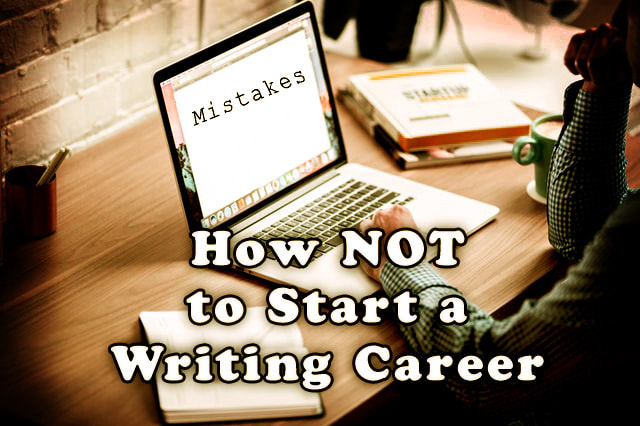
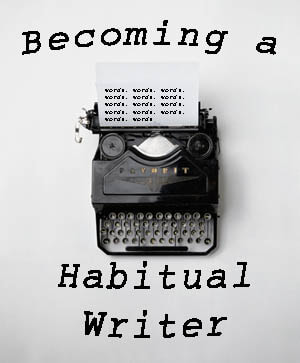
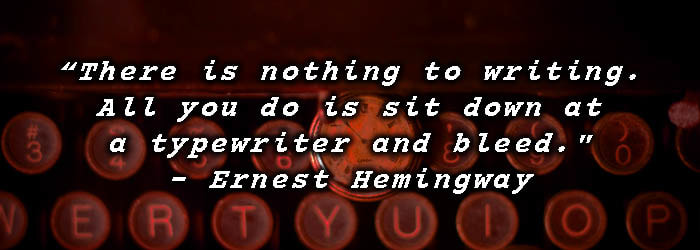

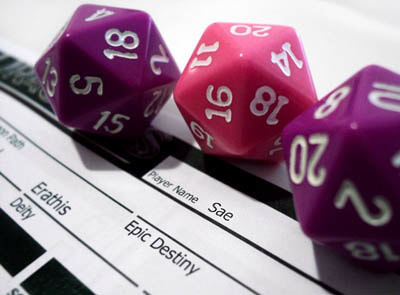

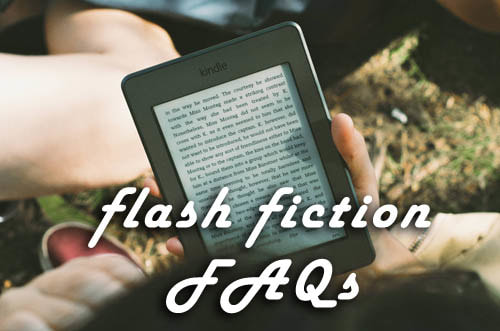

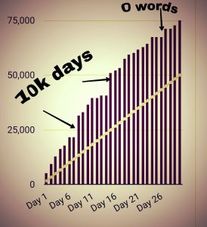
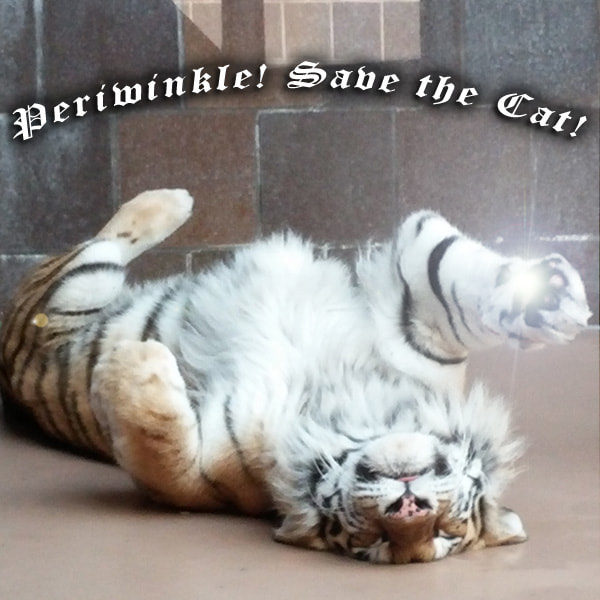
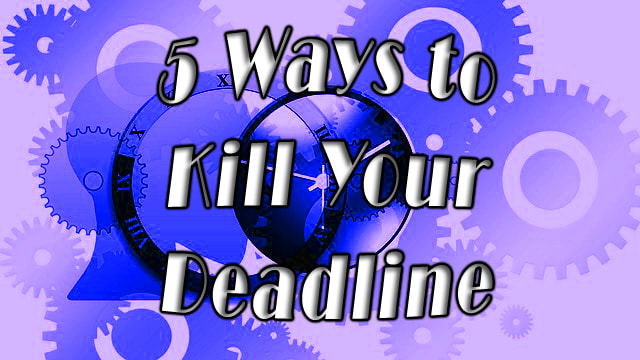
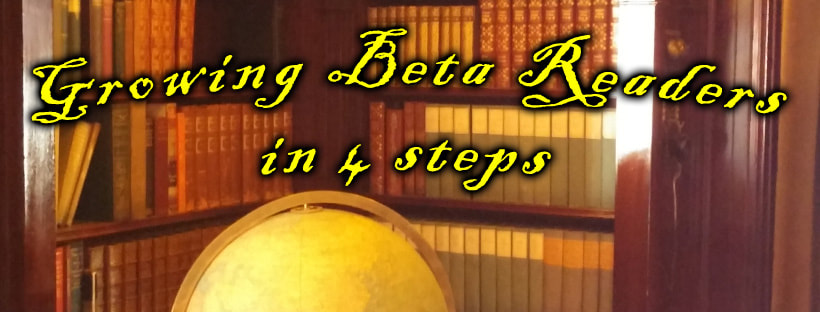
 RSS Feed
RSS Feed